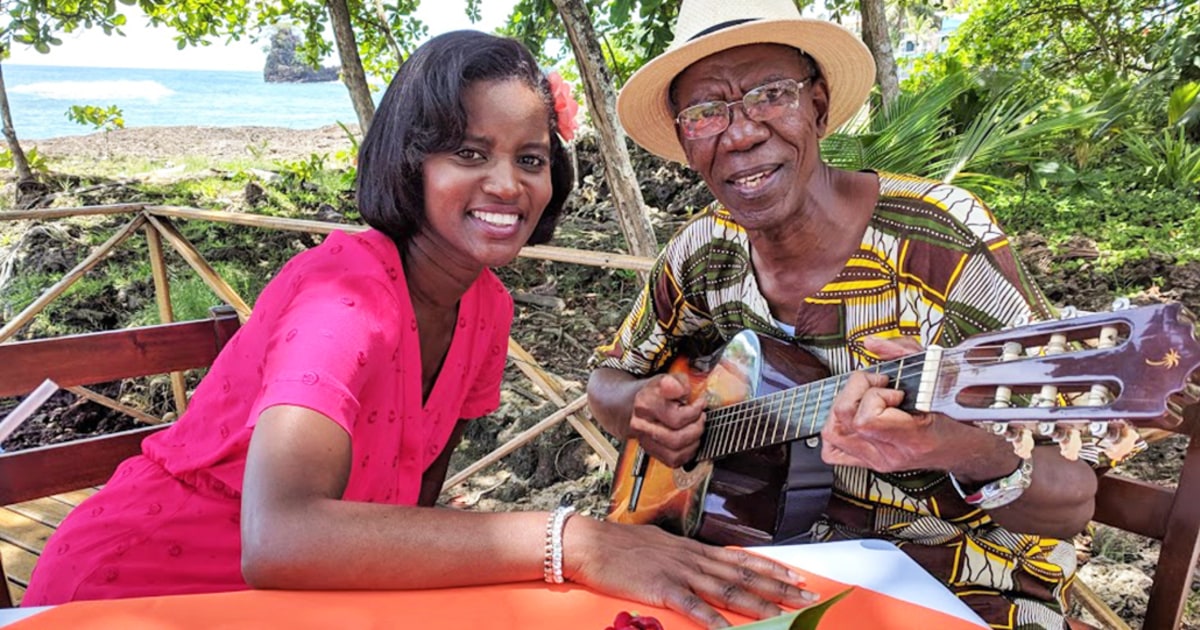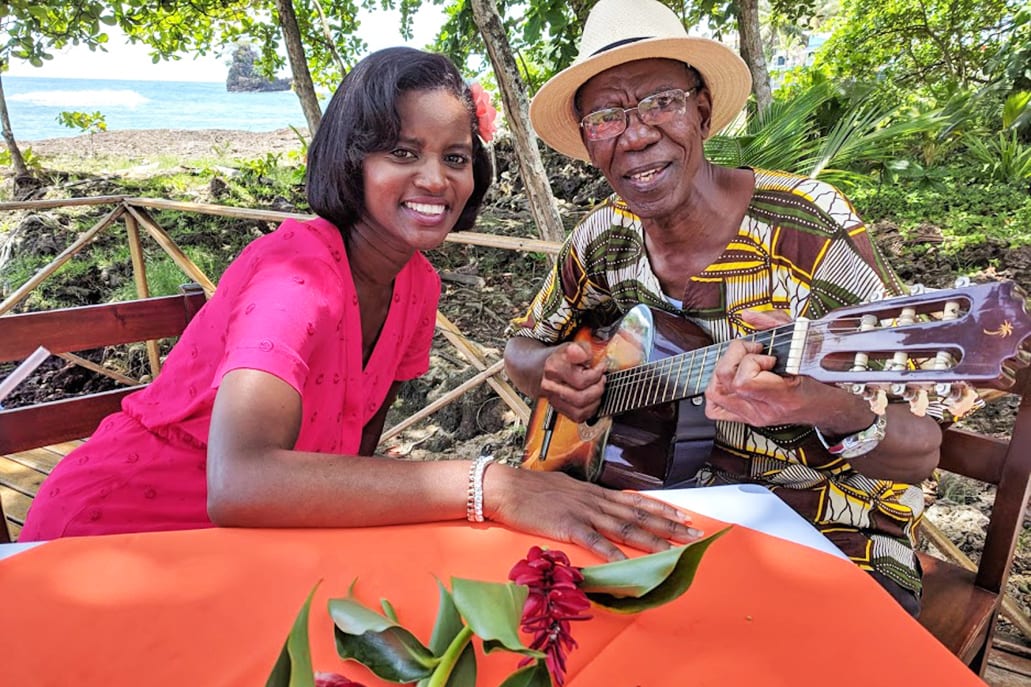
There are a slew of travel shows on television, but nothing quite like the one headed up by Philadelphia native Kim Haas. A media veteran with more than 20 years in the business — including a stint at a Telemundo affiliate in Philadelphia — Haas is not necessarily focusing on the locales or the foods of far-flung exotic places, but more on a specific segment of the population that she says gets overlooked time and time again. “Afro-Latino Travels With Kim Haas” celebrates the contributions of African descendants in the Caribbean and throughout Latin America.
“I’ve traveled quite a bit throughout Latin America,” said Haas, who told NBC News it all started when her maternal grandmother, Cassie Keith, took her to Acapulco, Mexico, when she was around 7 years old.
As she grew up and traveled the region, she said she saw a lot of people who looked like her, “a dark-skinned African American.”
But when she watches travel shows, “I don’t see anyone who looks like me and I don’t see Afro-Latinos, they’re simply not represented,” said Haas, who majored in Spanish as an undergrad and in graduate school.
Haas says she wants people to see what’s missing in textbooks and on the media. “I want to bring something different to television.”
The show’s first two episodes are running through the end of the month on public television’s Create TV — with an encore in February during Black History Month — and focus on the Afro-Latino presence in Costa Rica, including in the capital, San José, and in the city of Limón, which has a large Afro-Latino presence.
“Blacks in Costa Rica, for instance, are 10 percent of the population. They made and make significant contributions to the historical and cultural life of the country,” Haas said. “For instance, Jamaican immigrants built the Costa Rican railroad. These stories and history need to be shared and taught and honored.”
Of the 12 million Africans who survived what is known as the Middle Passage — the forced voyage of enslaved Africans across the Atlantic Ocean to the Americas — more Africans were brought to Central and South America and the Caribbean than to what is now the United States, a fact that is not as well-known as it should be, Haas said.
“People don’t know that there are Black people in Uruguay, for instance; I met with the first Black Uruguayan member of Parliament,” Haas said. There are also Blacks in countries as diverse as Perú, Bolivia, Ecuador, Colombia and in the U.S. territory of Puerto Rico. While some countries have smaller Black populations, Brazil has a large Black community.
“There are people who write and say, I never knew there were Blacks in Costa Rica, and they say that when they can, they’re going to go and visit,” Haas said. “And that’s fabulous. It gives me great hope that people are responding so positively to the show.”
Trying to find stories that haven’t been told about communities few people know about is Haas’ biggest inspiration. “Between my friends, my Latino friends, my Afro-Latino friends, they’ll tell you, they’ll reach out to you,” she said. “Plus the internet is a tremendous resource, and more and more magazines are doing stories on Afro Latinos. I’m always looking, I’m always searching — and one thing leads to another.”
As with so many travel shows, the coronavirus pandemic put a halt to production, and Haas has been hosting virtual events to discuss segments of the show in the meantime. “I recently got an email from a Spanish teacher in New Jersey who wants to use the show in the curriculum,” she said. “I’ve had other teachers reach out to use the episodes.”
Costa Rica was the only place the show could go to before coronavirus shut everything down, but Haas is hopeful that by the spring or summer of next year they’ll get back on the road. Her goal is ultimately to film throughout all of Latin America.
Haas’ family members taught her a lot about the contributions of African Americans and some relatives fought for civil rights. She sees her travels and her work as a way to add to Black history.
“I feel a tremendous connection with Afro-Latinos,” said Haas. “Even though they may speak Spanish or Portuguese and their names may be María or Joao or Josefina or Raquel, we come from the same people — we’re part of the same family.”
Follow NBC Latino on Facebook, Twitter and Instagram.
Source: | This article originally belongs to Nbcnews.com










